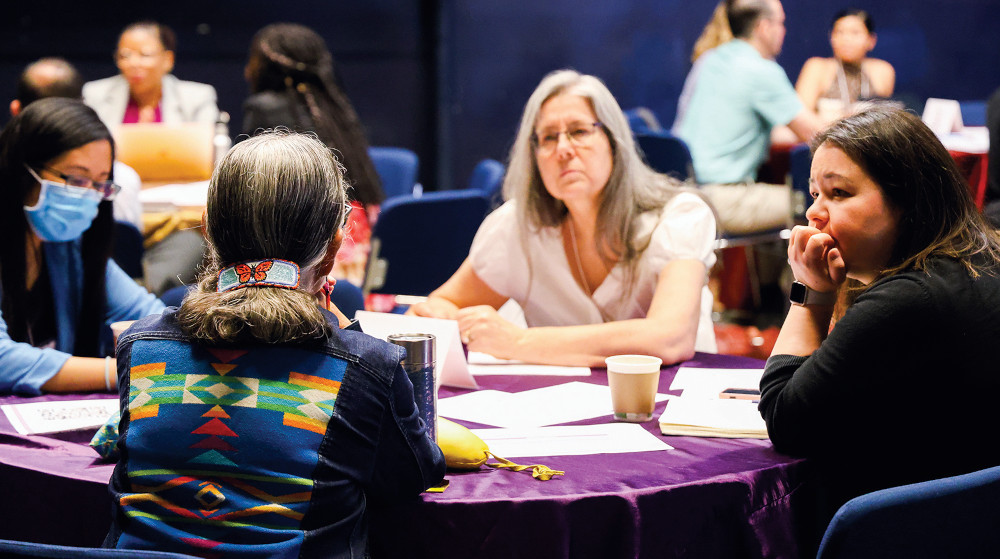
An innovative partnership between academics, community leaders and provincial government staff is conducting research that aims to change policy to improve the lives of Manitobans.
Social Policy Evaluation Collaborative Team Research at Universities in Manitoba (SPECTRUM) brings together more than 100 partners to help solve complex social policy challenges.
The group was recently awarded $2.5 million over seven years from the Social Sciences and Humanities Research Council of Canada (SSHRC) to continue to build the collective that was launched in 2019 with a SSHRC partnership development grant.
“What we’re trying to do is produce really impactful and rigorous evidence that can change policy and practice,” said Marni Brownell [PhD/91], director of SPECTRUM and professor of community health sciences.
“Our mission is ultimately to make Manitoba a better and more equal society when it comes to outcomes across health, education, social services and the legal system.”
SPECTRUM is currently focused on four research themes: child and family services, basic income, mental health and addictions, and housing and homelessness.
The partnership includes researchers and students from six post-secondary institutions in fields ranging from community health sciences and law to education and social work. The 15 community organizations involved include Harvest Manitoba, Autism Alliance of Canada and the Manitoba Métis Federation.
Provincial government staff who are taking part represent nine departments, including families, education and early childhood learning, as well as housing, addictions and homelessness.
Brownell, who is also a senior research scientist at UM’s Manitoba Centre for Health Policy (MCHP) and a researcher with the Children’s Hospital Research Institute of Manitoba, stressed the importance of government involvement.
“Many of us have worked in this space for years where we produce really rigorous – and what we think are important – research findings, only to have them sit on a shelf and be ignored. Having representatives from the government at the table from the beginning is great because they can help shape the research so it can be used in policy decisions.
“And integrating community organizations, who serve the folks the evidence is going to impact, is really important.”
Elizabeth Decaire [BA/06, BN/10], a co-director of SPECTRUM and a nurse program advisor with the First Nations Health and Social Secretariat of Manitoba, said her organization is participating in SPECTRUM because of the project’s commitment to including First Nations members, voices and data.
“Unfortunately, our First Nations children are over-represented in statistical data that are concerning … because of policies and systems currently in place that continue to cast harmful effects,” Decaire said.
“My hope is that this project will close gaps in health and social services for First Nations children and families.”
Each SPECTRUM research project starts by using data in the Manitoba Population Research Data Repository housed at MCHP – one of the world’s richest storehouses of population data.
The repository includes anonymized data that is routinely collected from the health-care, education, social service and justice systems every time a Manitoban comes into contact with these systems.
“We begin with that because the repository is a great resource,” Brownell said. “It’s hugely important for this research.”
BY MATTHEW KRUCHAK
